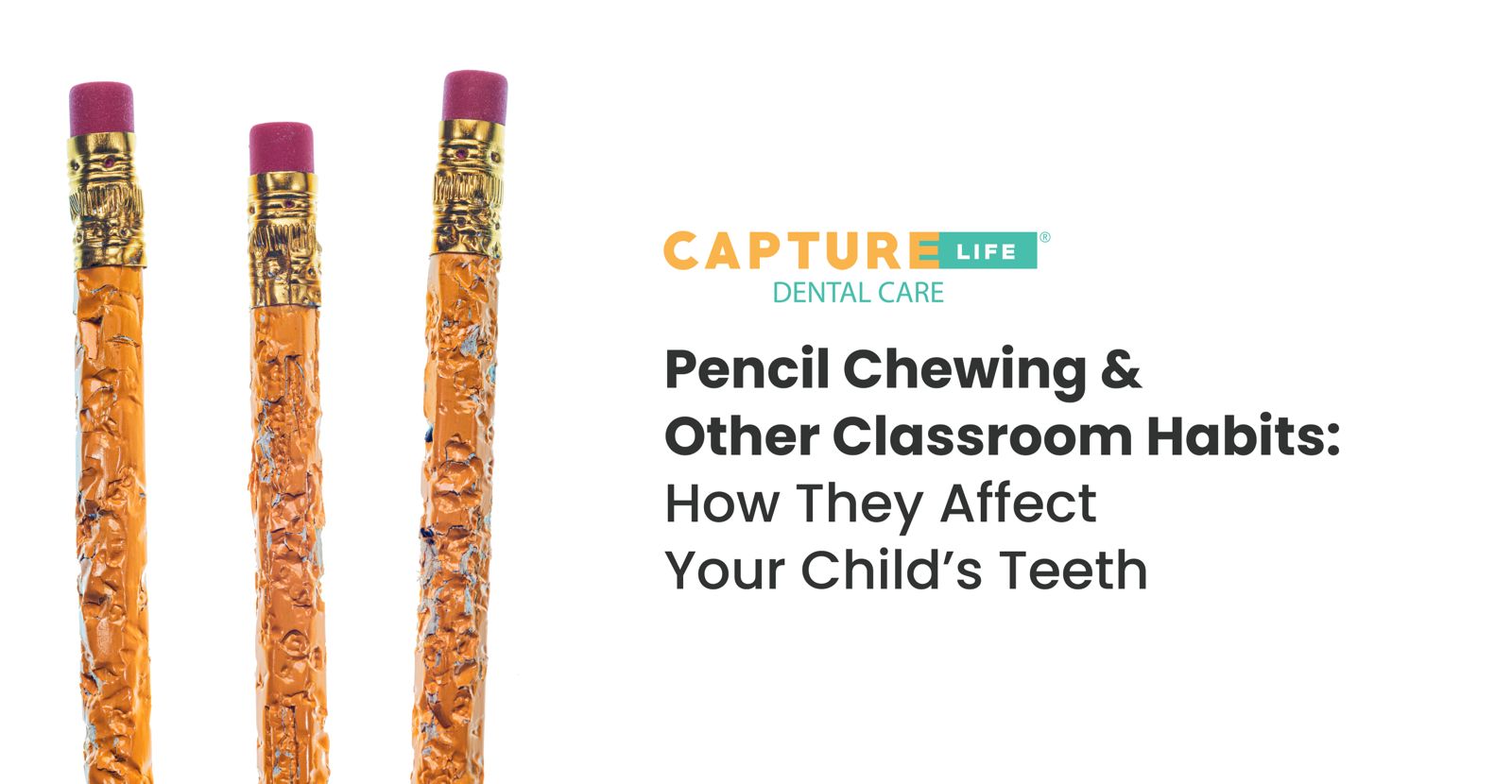
06 Nov Pencil Chewing & Other Classroom Habits: How They Affect Your Child’s Teeth
Children often develop small habits during school hours, chewing on pencils, nibbling pen caps, gnawing on erasers, that seem innocent but may undermine their smile. For lasting oral care, robust dental care, and effective oral hygiene, parents and educators need to understand how these habits impact teeth care and what to do about them.
Why Pencil Chewing Matters
Chewing on pencils or pens is more than just a quirky habit. It can lead to chipped enamel, micro-fractures in teeth, and even shifts in alignment over time. For example, one dental blog notes that “chewing pens or pencils can wear down the edges of your teeth and can possibly cause toothaches and fractures.”
Moreover, putting non-food objects into the mouth increases exposure to germs and bacteria, unhygienic items like pencil ends may carry microbes into your child’s oral cavity.
How Classroom Habits Affect Oral Health
When children chew pencils or pen caps, several things can happen:
- The constant pressure on teeth and jaws may alter proper bite and alignment, especially if the habit is regular.
- Enamel may wear unevenly; tiny cracks can deepen over time, making teeth more vulnerable to decay.
- Gum tissue near the front teeth can receive repeated trauma, leading to irritation or recession if not addressed.
Awareness of these patterns helps parents, combined with support from a trusted dental specialist in Banjara Hills at reliable dental clinics, to intervene early.
Alternatives & Supportive Strategies
Breaking a chewing habit starts with recognizing triggers (boredom, stress, focus fatigue in class).
- Offer a safe substitute such as sugar-free gum or a small chewy toy designed for kids, which helps satisfy the urge without stressing teeth.
- Regularly inspect items like pencils, pen caps or erasers and discourage chewing them.
- Encourage the habit of mindful chewing on food only; maintain regular snacks to avoid idle chewing for focus.
- Reinforce strong oral hygiene habits: brushing twice daily, especially after school, and flossing. These reduce the risk of enamel damage turning into decay.
Why Professional Monitoring Is Important
Since these habits may go unnoticed or seem harmless, routine visits to dental clinics are vital. A specialist can check for signs of wear, treat early damage, and guide parents on correcting classroom habits. At Capture Life Dental Care, our team emphasises teeth care beyond just cleaning, we address behaviour, alignment and long-term oral health.
Conclusion
Classroom chewing habits may look harmless, but they quietly put children’s smiles at risk. By combining awareness, safe alternatives, strong dental care routines and professional support, you can protect your child’s teeth from damage and maintain a healthy, confident smile.
For expert guidance from a dedicated dental specialist in Banjara Hills, visit Capture Life Dental Care and give your child’s oral health the attention it deserves.

